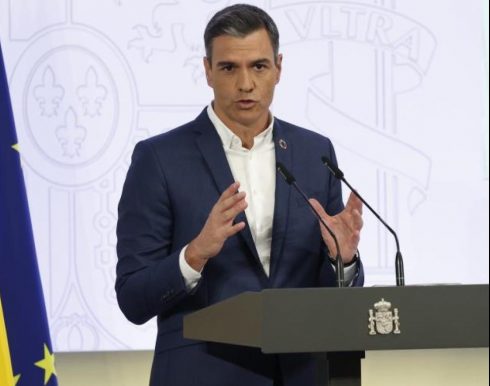THE Socialist Party-led national government in Spain today announced its budget plans for 2023, which will be the last year before the next general election. The measures come at a time when Spaniards are facing a cost-of-living crisis, record inflation and low growth forecasts.
A deal on the spending plans was reached between the Socialists and their junior coalition partner, leftist Unidas Podemos, in the early hours of Tuesday morning. The budget will still, however, have to pass the lower house of parliament, the Congress of Deputies. The plan will need the support of other groups given that the government lacks a working majority in the chamber.
Here are the key measures that were announced today, and which have been billed by the administration of Prime Minister Pedro Sánchez as containing “the biggest social spending in history in order to bolster the welfare state”.
More free train rides. The budget plan will maintain a system that is currently in place whereby regular users of train routes can get their tickets for free. The scheme, which began in September, allows users to buy a pass, the cost of which is then refunded after a certain number of journeys are taken. The Cercanías and Rodalies commuter trains, as well as the Media Distancia system, will continue to enjoy the scheme, which is aimed at helping the public with the cost of living crisis and improving the environment.
A boost to the national health system. The government is committing to increased spending for the country’s health system, in particular primary healthcare, mental health and dental.
Better access to housing. The government is increasing its spending in this area by more than 5% compared to last year, and will work to improve access to low-rent properties and strengthen a scheme for young people who are seeking a place to live.

Improved work-life balance for families. The government’s budget plan includes a week of paid leave each year if people need to take care of relatives or other people living in their home. This could include looking after children or an older member of the family, or accompanying your partner to the doctor or hospital.
Extra help for the mothers of young children. Until now, working mothers in Spain received a tax rebate of €100 a month while their children were aged three or younger. Now the government will be rolling out the scheme to all women, even if they don’t have a regular job.
Eight weeks of leave for working parents. To be included in the future Family Law, this measure was part of the budget negotiation. The Socialists and Unidas Podemos have agreed on a plan whereby parents can take up to eight weeks off work each year until their children turn eight years old. The agreement between the two parties involves approving this law before the end of October.
More spending on defence. Despite the opposition of coalition partner Unidas Podemos, the Spanish government is to raise defence spending by 25% in 2023 compared to this year. Most of this money will go to modernisation programs, for a total of €4.9 billion. According to the government, this will also mean the creation of 22,667 direct and indirect jobs.
The cost. The budget plan for 2023 will involve a record €266.7 billion of social spending, up from €248 billion for this year. A lot of this will go toward a rise in pensions of around 8.5%, according to the government.
Read more:
- Inflation rate busts 10% mark in Spain for first time since 1980s
- Bus companies fear impact from Spain’s free train ticket scheme
Click here to read more Spain News from The Olive Press.








